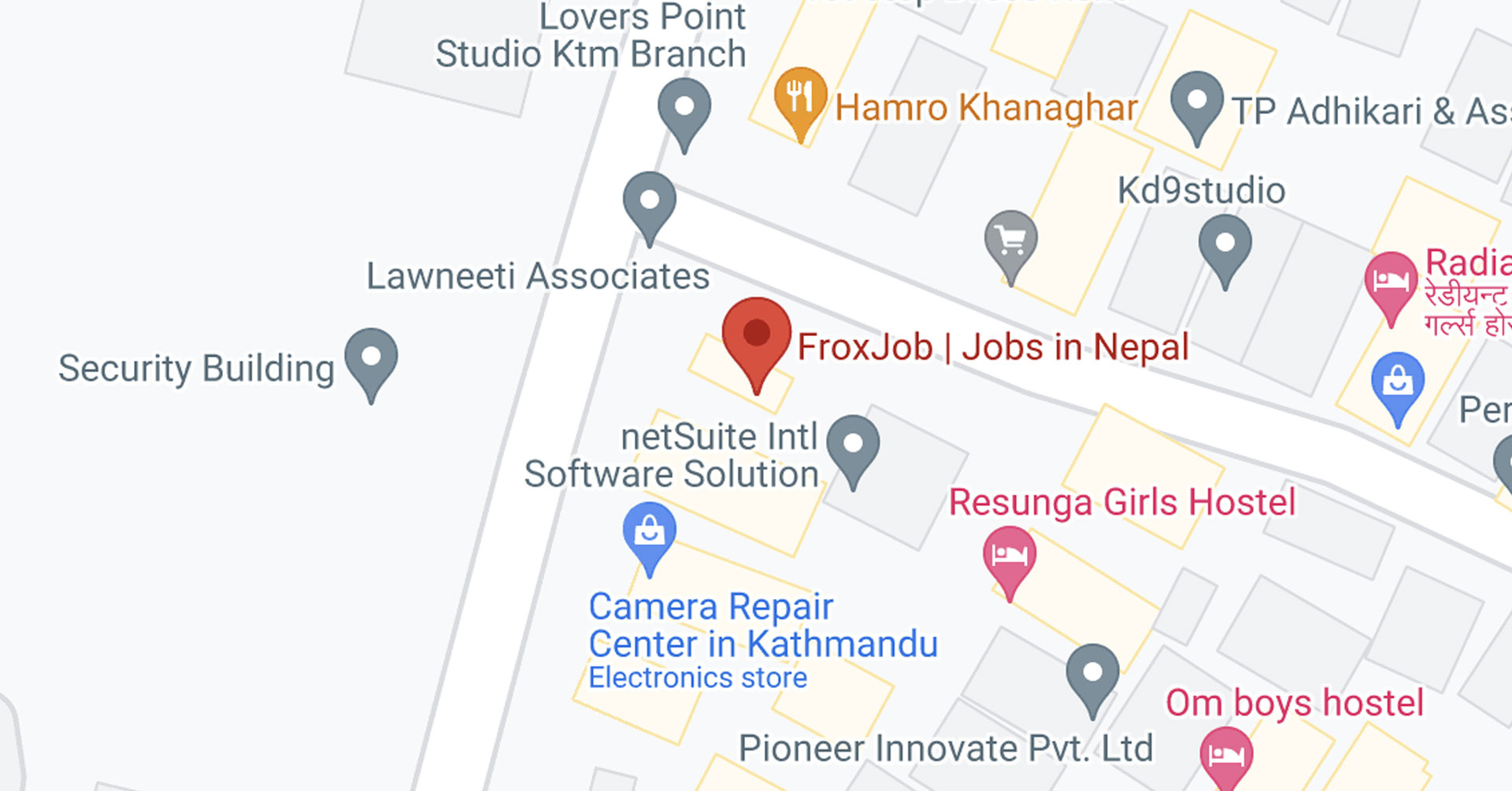
Category: Insights
Views: 1418 | April 23, 2025

Posted By: FroxJob
Views: 1418
Posted On: 23-April-2025

A Guide to Working Remotely for Foreign Clients from Nepal: Tax and Legal Insights
 <
<

Phone: +977 01 5707271, +977 9801085897
Email: apply@froxjob.com
Phone: +977 9801898004, +977 9801085897
Email: services@froxjob.com

3rd floor, Gravity Center,
Anamnagar, Kathmandu
Phone: +977 01 5705219
Phone: +977 01 5707271
Phone: +977 9801898004
Email: info@froxjob.com

Bharatpur 10 - Chitwan,
(Opposite to Bharatpur Airport)
Phone: +9779801048463
Phone: +9779801048463
Email: chitwan@froxjob.com
We would like to notify that Froxjob does not, in anyway request/collect any fee/s from job seekers during or after the hiring process. It was, it will and it shall always be free for the candidates.
Please kindly be aware of such scammers! When searching for a job, please use safe and reliable sources.
OK